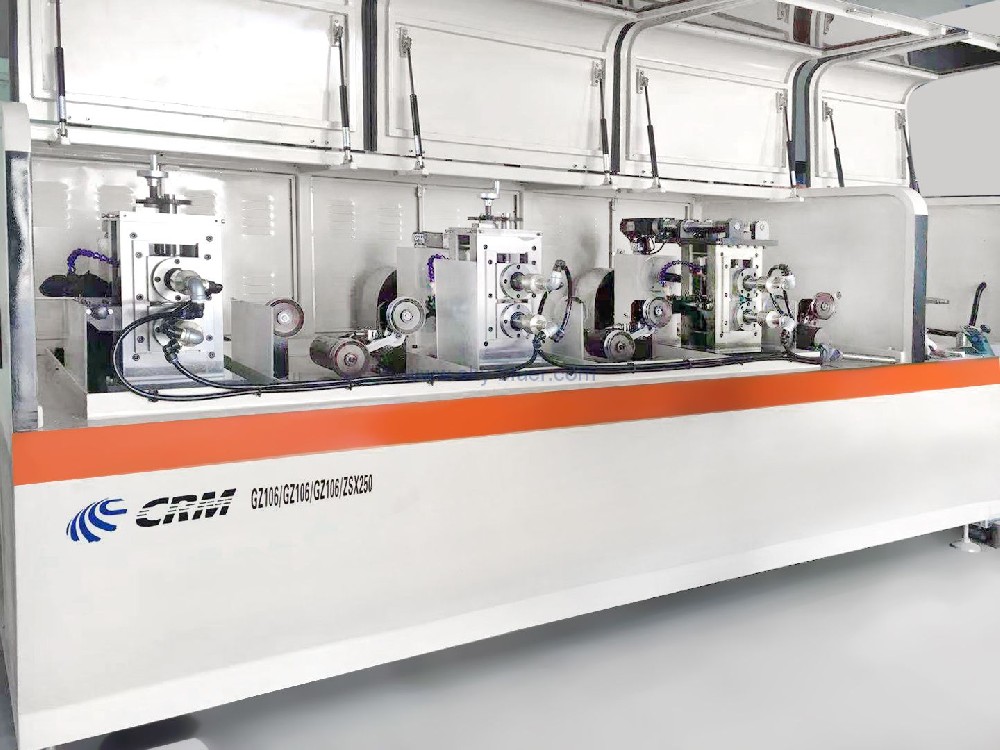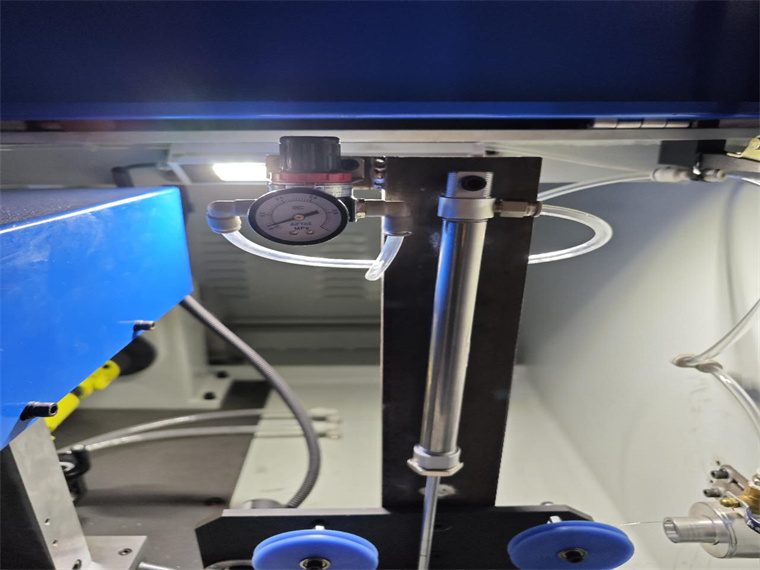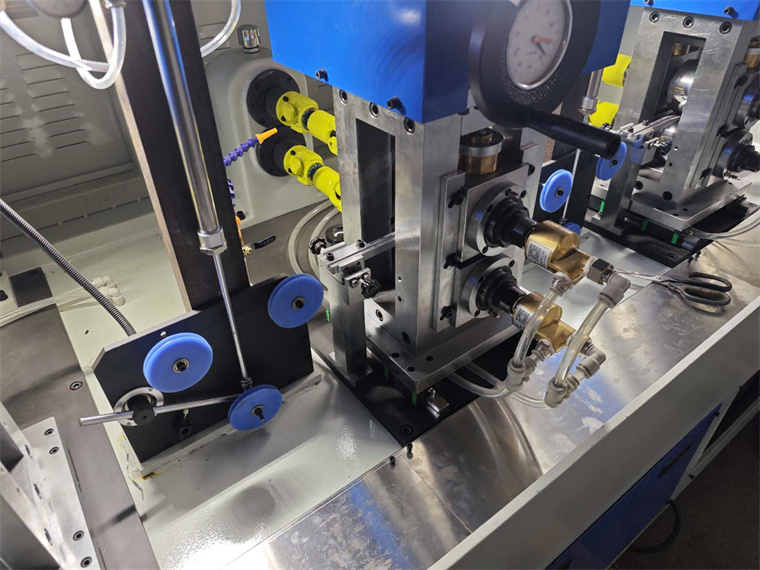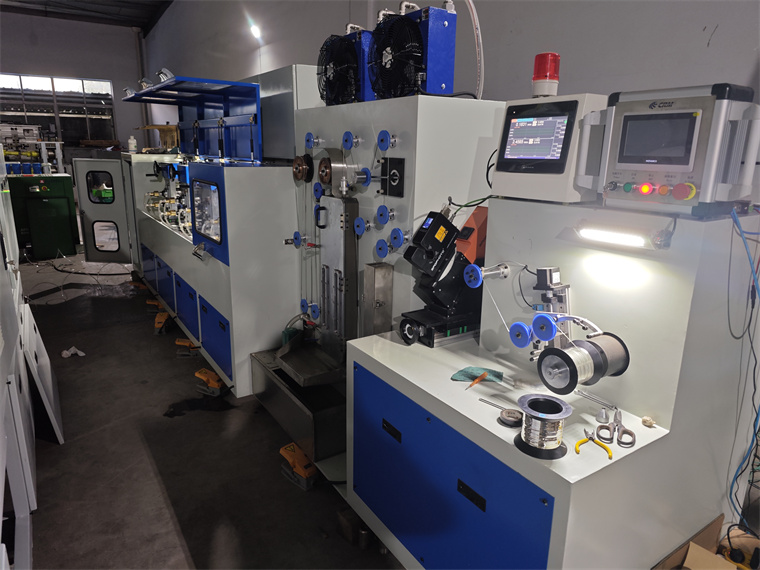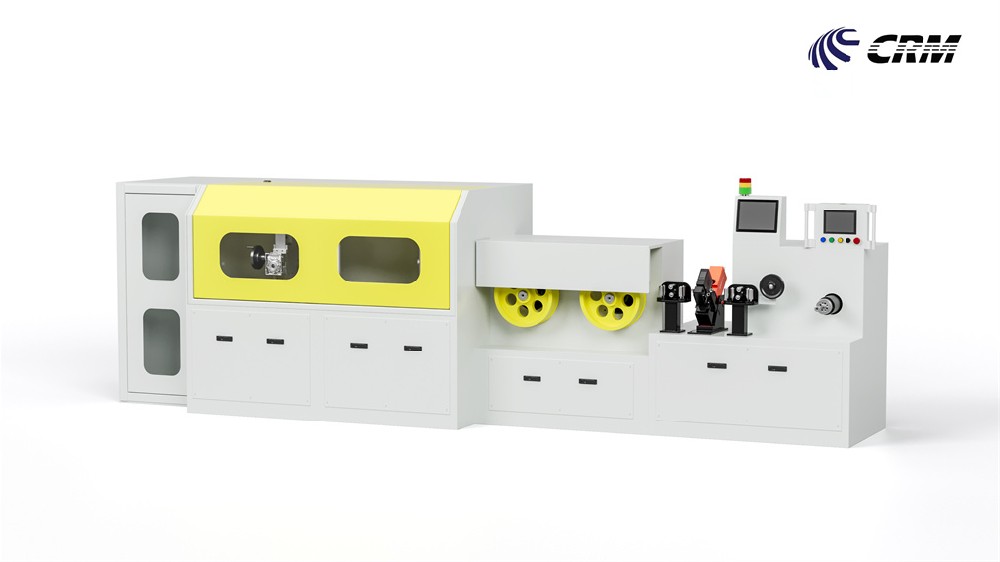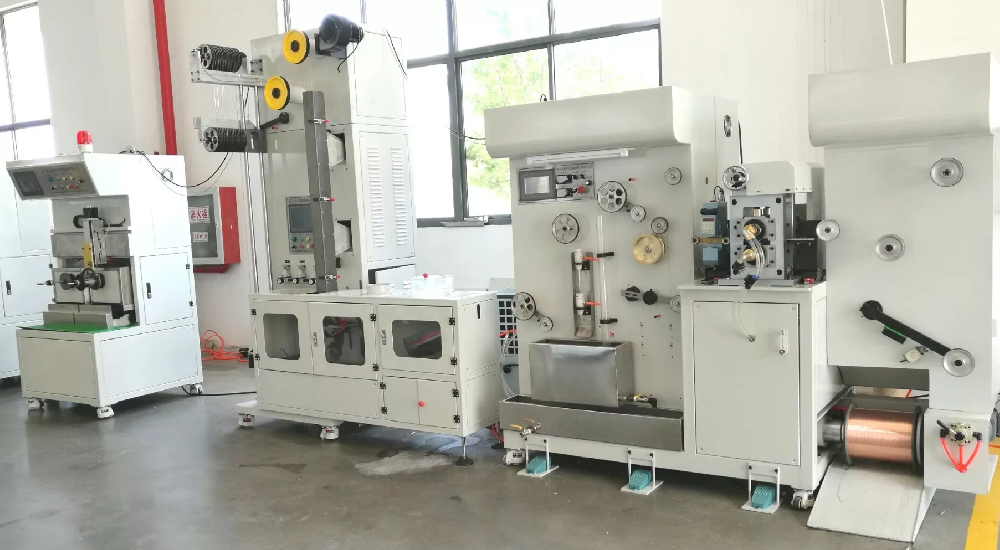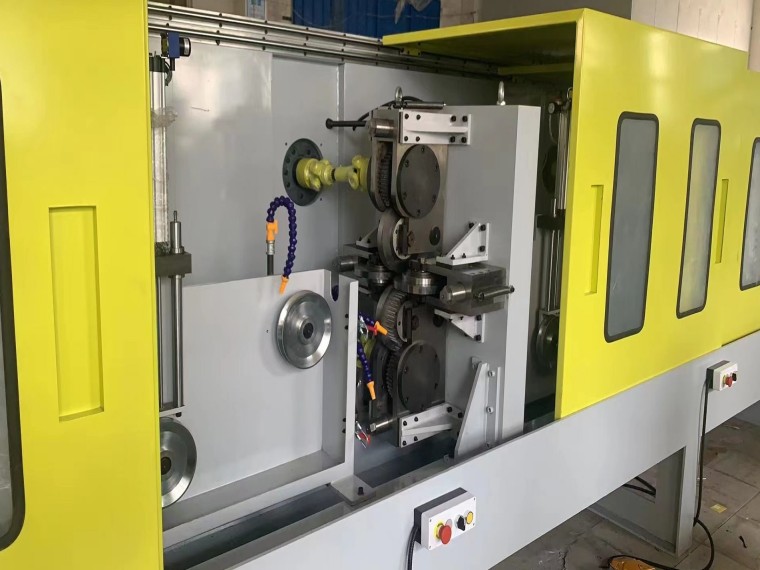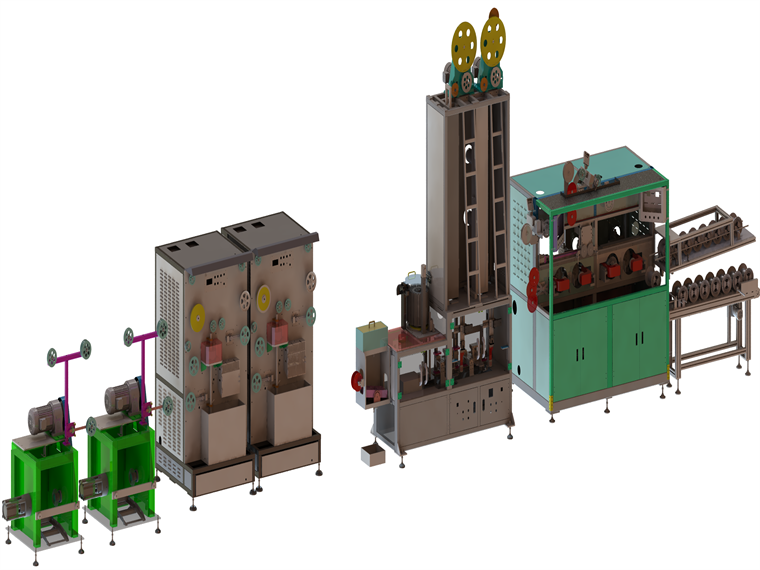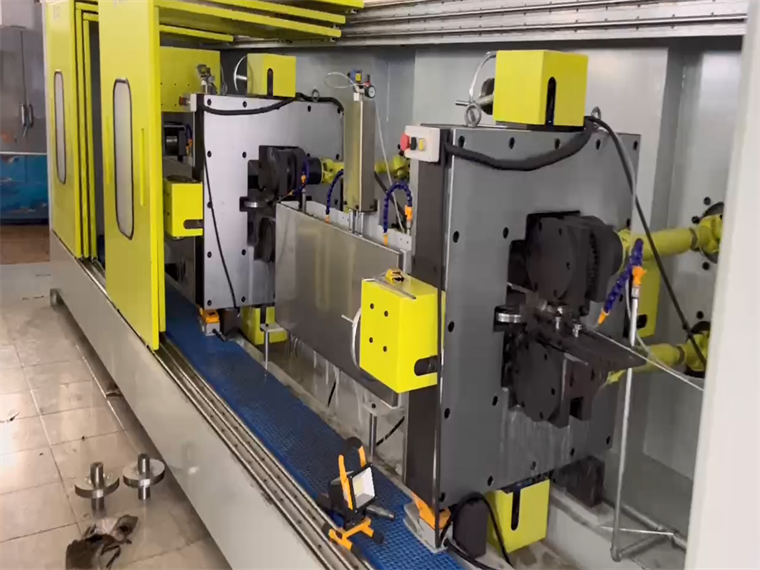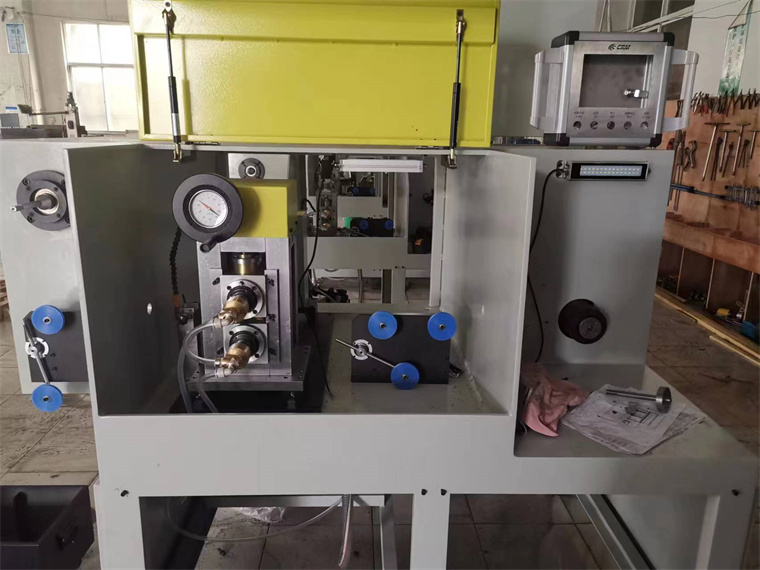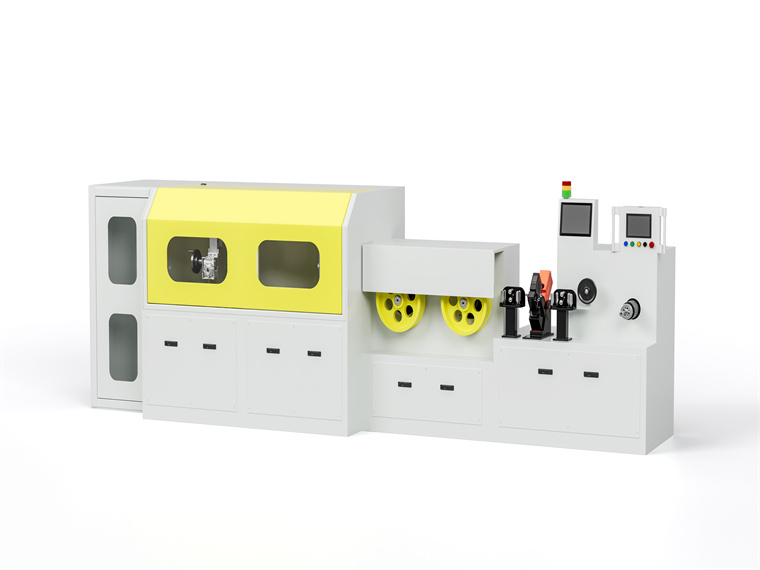Flat Wire Rolling Mill 2025
Flat Wire Rolling Mill | |
Brand | CRM |
Model | CRM-2025 |
Type | Cold Rolling |
Shapes | Flat, Rectangle, square, Wedge, Profile |
Size Range | Width 1.0mm-30mm Thickness:0.5mm-12mm |
Tolerance | +-0.001mm or can be Customized |
Material | Suitable material: high-carbon,medium-carbon, low-carbon steel wire, stainless steel wire, titanium wire,titanium nickel alloy wire, copper aluminum wire, brass wire and other non-ferrous and ferrous. |
Design Speed | 30-350 m/Min |
Press-down Model | Automatic or manual |
Roll Details | |
Roll material: | tool steel, sintered metal or carbide steel |
Roll Drive | Double Serve |
Roller Diameter: | 60mm-350mm |
Roll precision: | less than 0.001mm |
Optional Devices | |
Pay-off Unit | Spool pay-off, Coiling pay- off unit |
Take-up Unit | Customized |
Wire guide device | Customized |
Laser measuring system | Customized |
Central Lubrication System | Customized |
CRM Flat wire rolling mill Complete production lines for your FLAT and PROFILE
3 Stand Flat wire Tandem Rolling Mill Line
The flat wire rolling line, also known as the wire flattening machine, is an industrial machine that makes flat wire using round bars as input material, with flat wire as its output.
It is possible to perform high precision flat& shaped wires rolling experiments from round inlet wires.
Uses: used for rolling micro flat wire, square wires, rectangular but also Wedge wire, pentagonal wires, hexagonal wires, semicircular wires.
From our modular component range, CRM will build a production line optimally matching your requirements. Here, we perceive ourselves as a system supplier designing, constructing, building, delivering and commissioning your system.
What Are The Features Of Flat Wire Rolling Mills?
The CRM flat wire rolling mill machine is mainly used to manufacture flat wires from round wires or to further alter the profile of flat input wires. With CRM's CRM-2024 precision rolling mill Series, profiles are produced with higher precision than equivalent designs due to their higher stiffness.

What Are The Factors To Consider When Choosing A Flat Wire Rolling Mill?
In the realm of metalworking, the choice of a flat wire rolling mill is crucial, acting as the backbone for wire quality, efficiency, and consistency in production. A mill's precision and control abilities play an essential role in the decision; an accurate mill with fine-tuned adjustments ensures uniform thickness and width, an essential component of high-quality results. One of the most important aspects of selecting a mill is material compatibility; it must know how to handle your specific metal types, including steel, copper, and precious metal, to ensure longevity and prevent undue wear. In order to avoid bottlenecks and maintain seamless workflow, operational aspects, such as capacity and speed, must align with production volumes. Furthermore, the mill's durability and ease of maintenance are paramount to withstand continuous use and minimize downtime, ensuring sustained productivity. Lastly, in today's technologically advanced landscape, opting for a flat wire rolling mill with smart features like digital controls and automation can significantly elevate efficiency and quality control. Selecting the right flat wire rolling mill is more than an investment in equipment; it's a commitment to upholding excellence in your manufacturing processes.
What Technical Documents Can We Provide To Customers When They Purchase Our Wire Flattening And Shaping Equipment?
1. Technical data sheet for the machine, containing its serial number, year of manufacture, intended use, specifications and operation and maintenance instructions.
2. Foundation specification.
3. Layout drawing.
4. Cable list.
5. Pneumatic and hydraulic diagrams.
6. Lubrication instructions.
7. Detailed specification for all the materials necessary to ensure normal operation of the machine; detailed specification for the electrical equipment.
8. Machine operation and maintenance manual.
9. Operation manual for the electrical equipment.
10. Assembly drawing for the main units.
11. Installation drawings for the main components with a parts list as well as a list of wear parts and their identification drawings.
12. List of motors and electrical components, all documentation for the electrical components.
13. Circuit drawings and wiring diagrams, cable lists.
14. Instructions for the setup, check and, if necessary, calibration of all digital indicators.
15. Software packages necessary for maintenance.
16. Control program passwords (keys).
17. Certificates of quality and acceptance certificates.
18. Spare and wear parts lists containing the ID numbers and manufacturers of these parts.
19. Subcontractors’ technical documentation for all the machine components being purchased.
About Company
We are a leader in quality wire flattening and shaping machinery in China for over 10 years. Our experts take the time to design and build the right wire flattening and profile machines to fit your exact specifications and fulfill your unique production requirements. With experience building standard metal forming equipment, as well as customized metal forming machinery solutions – CRM’s product and service offerings can help increase precision & productivity for your business.
Contact Us Today
Email:[email protected]
Mobile/Whatsapp:+86 13861313954
Website: https://precision-rolls.com

